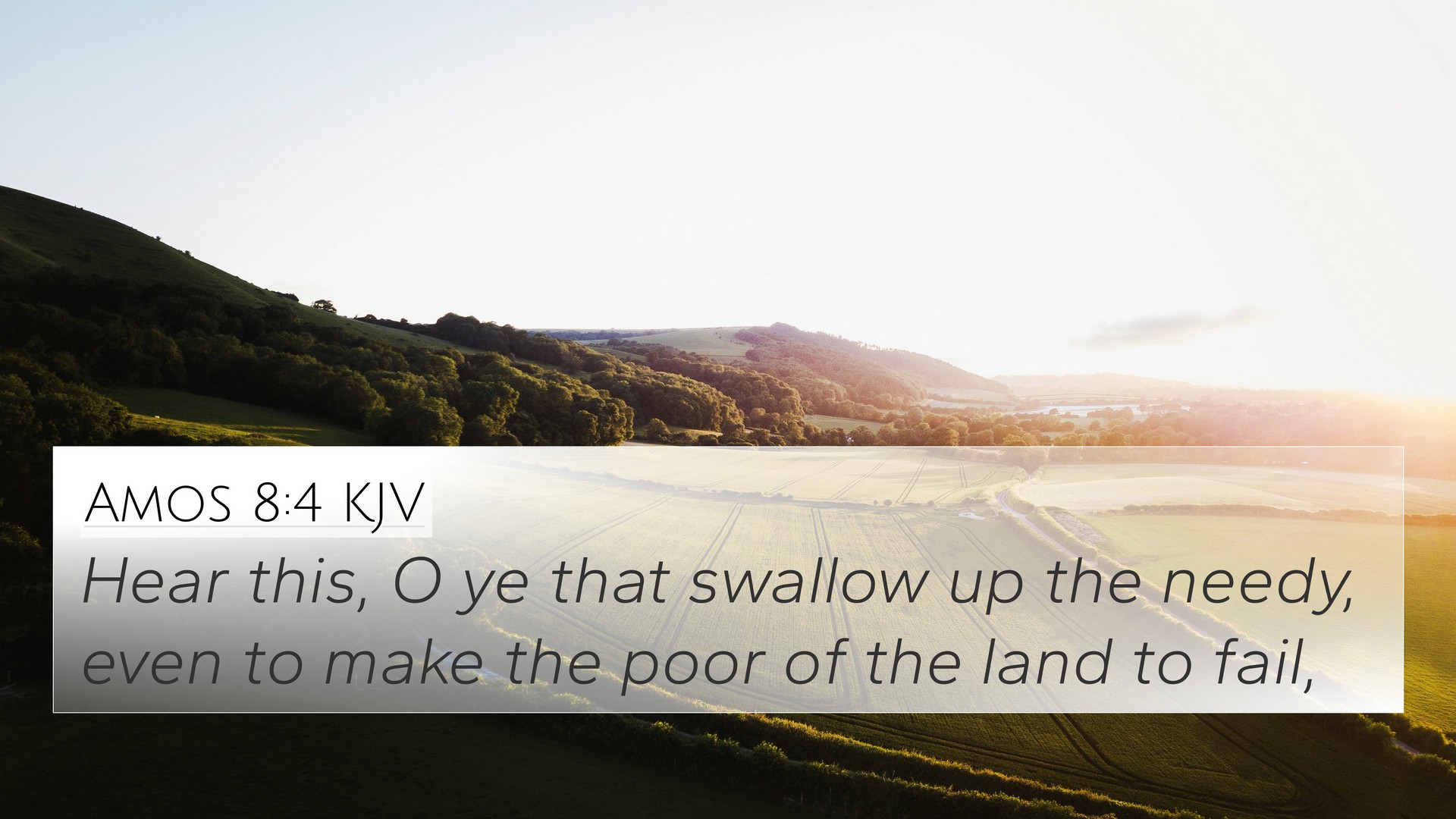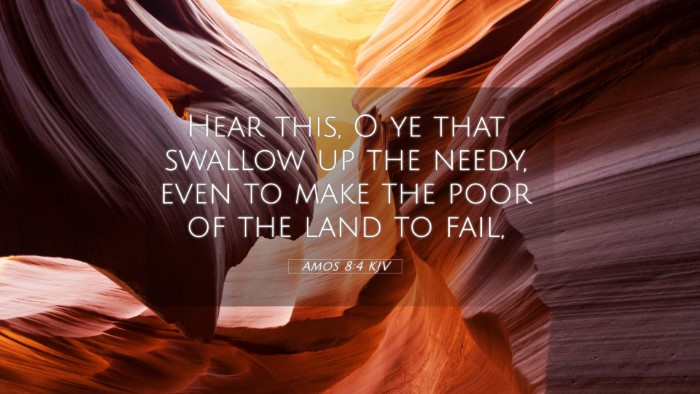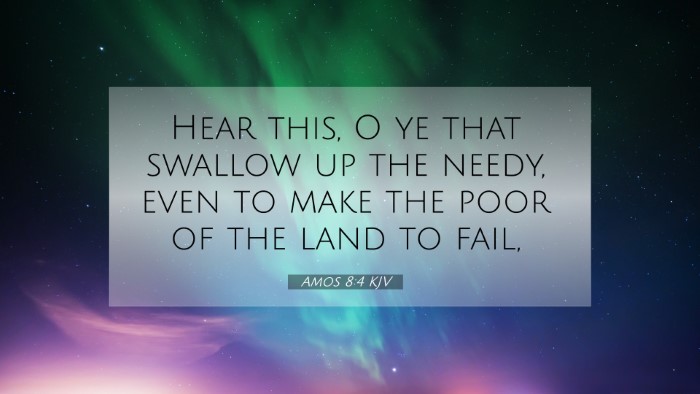Old Testament
Genesis Exodus Leviticus Numbers Deuteronomy Joshua Judges Ruth 1 Samuel 2 Samuel 1 Kings 2 Kings 1 Chronicles 2 Chronicles Ezra Nehemiah Esther Job Psalms Proverbs Ecclesiastes Song of Solomon Isaiah Jeremiah Lamentations Ezekiel Daniel Hosea Joel Amos Obadiah Jonah Micah Nahum Habakkuk Zephaniah Haggai Zechariah MalachiAmos 8:4 Similar Verses
Amos 8:4 Cross References
Hear this, O ye that swallow up the needy, even to make the poor of the land to fail,
Uncover the Rich Themes and Topics of This Bible Verse
Listed below are the Bible themes associated with Amos 8:4. We invite you to explore each theme to gain deeper insights into the Scriptures.
Amos 8:4 Cross Reference Verses
This section features a detailed cross-reference designed to enrich your understanding of the Scriptures. Below, you will find carefully selected verses that echo the themes and teachings related to Amos 8:4 KJV. Click on any image to explore detailed analyses of related Bible verses and uncover deeper theological insights.
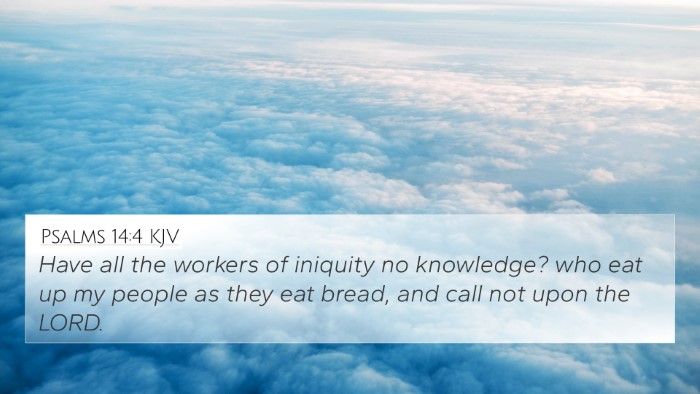
Psalms 14:4 (KJV) »
Have all the workers of iniquity no knowledge? who eat up my people as they eat bread, and call not upon the LORD.
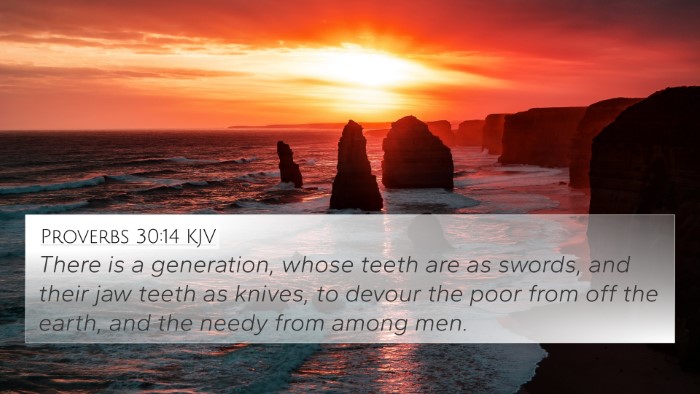
Proverbs 30:14 (KJV) »
There is a generation, whose teeth are as swords, and their jaw teeth as knives, to devour the poor from off the earth, and the needy from among men.
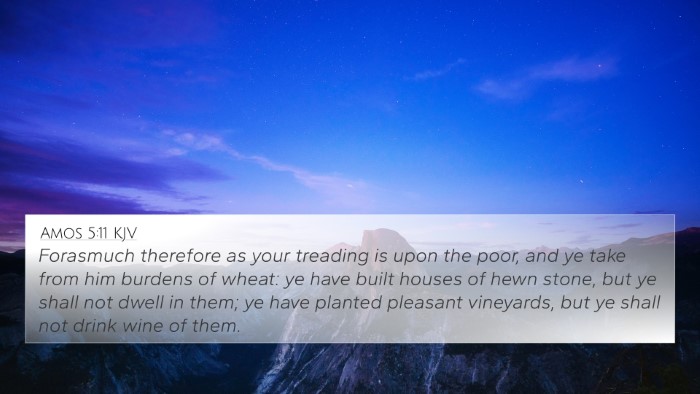
Amos 5:11 (KJV) »
Forasmuch therefore as your treading is upon the poor, and ye take from him burdens of wheat: ye have built houses of hewn stone, but ye shall not dwell in them; ye have planted pleasant vineyards, but ye shall not drink wine of them.
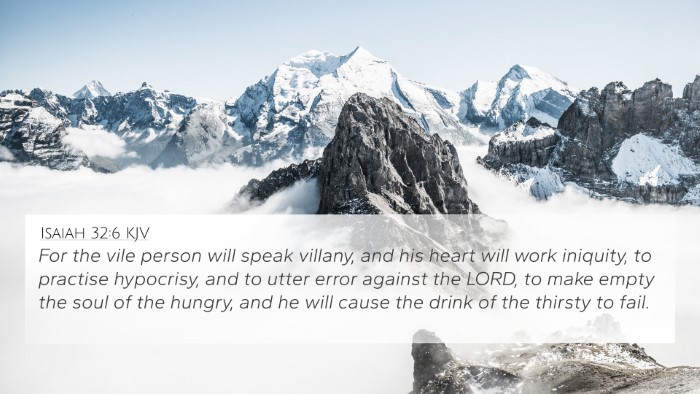
Isaiah 32:6 (KJV) »
For the vile person will speak villany, and his heart will work iniquity, to practise hypocrisy, and to utter error against the LORD, to make empty the soul of the hungry, and he will cause the drink of the thirsty to fail.
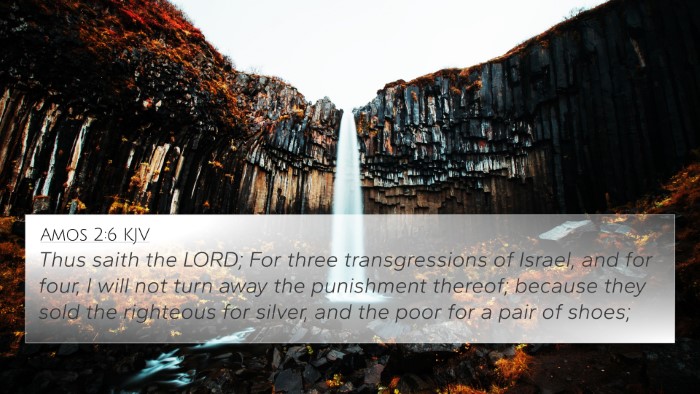
Amos 2:6 (KJV) »
Thus saith the LORD; For three transgressions of Israel, and for four, I will not turn away the punishment thereof; because they sold the righteous for silver, and the poor for a pair of shoes;
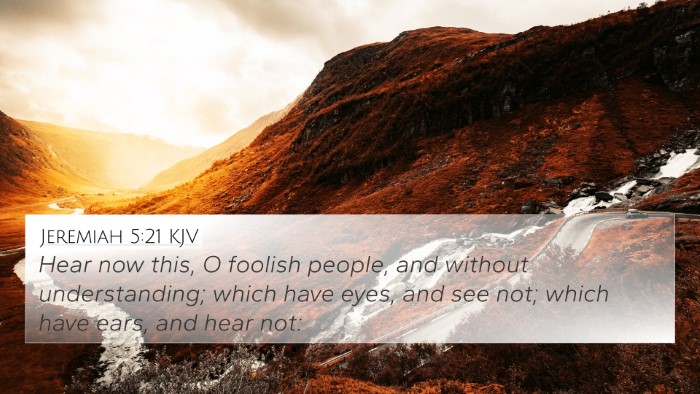
Jeremiah 5:21 (KJV) »
Hear now this, O foolish people, and without understanding; which have eyes, and see not; which have ears, and hear not:
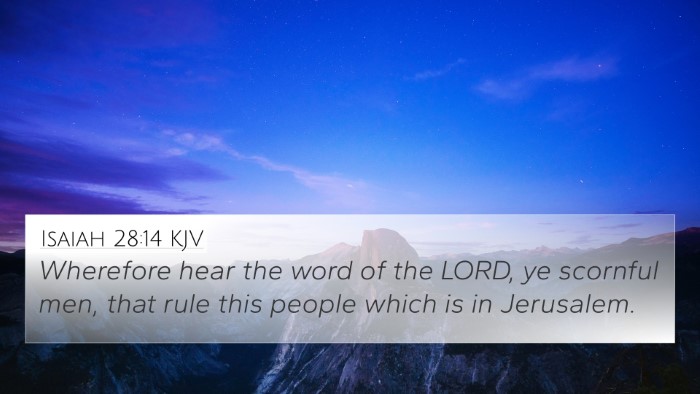
Isaiah 28:14 (KJV) »
Wherefore hear the word of the LORD, ye scornful men, that rule this people which is in Jerusalem.
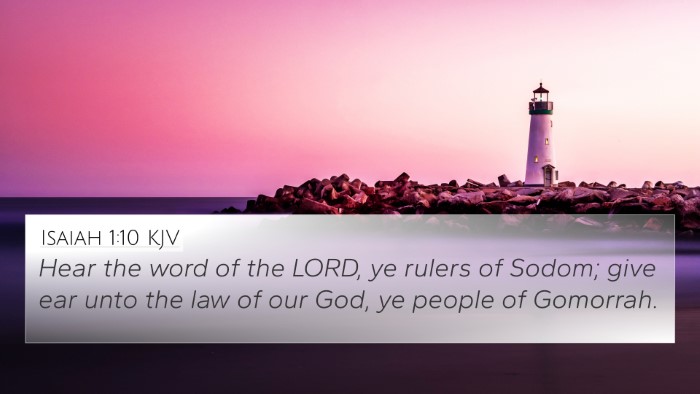
Isaiah 1:10 (KJV) »
Hear the word of the LORD, ye rulers of Sodom; give ear unto the law of our God, ye people of Gomorrah.

Psalms 56:1 (KJV) »
Be merciful unto me, O God: for man would swallow me up; he fighting daily oppresseth me.
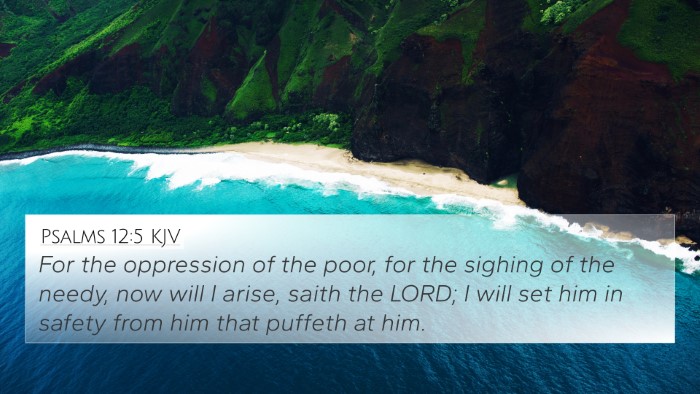
Psalms 12:5 (KJV) »
For the oppression of the poor, for the sighing of the needy, now will I arise, saith the LORD; I will set him in safety from him that puffeth at him.
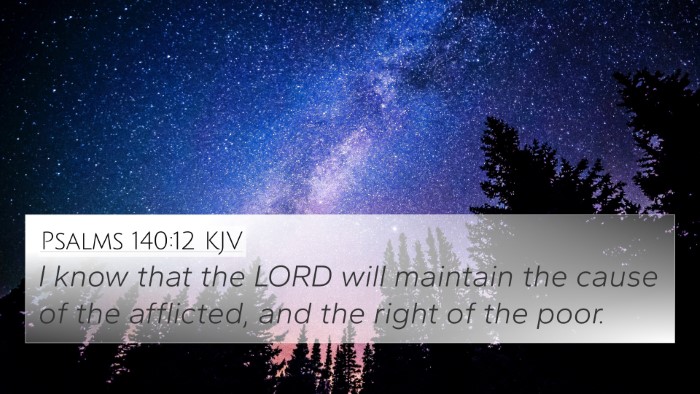
Psalms 140:12 (KJV) »
I know that the LORD will maintain the cause of the afflicted, and the right of the poor.
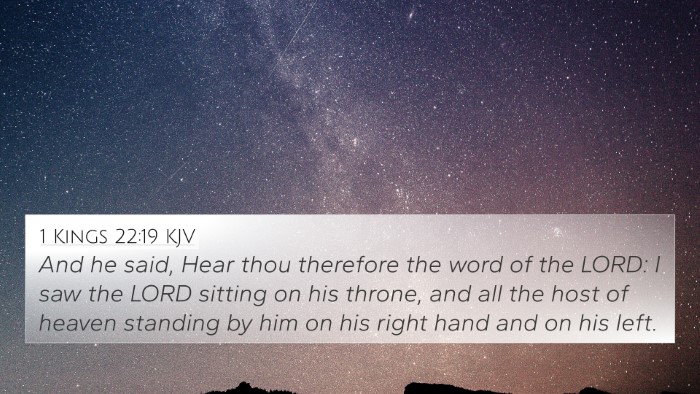
1 Kings 22:19 (KJV) »
And he said, Hear thou therefore the word of the LORD: I saw the LORD sitting on his throne, and all the host of heaven standing by him on his right hand and on his left.
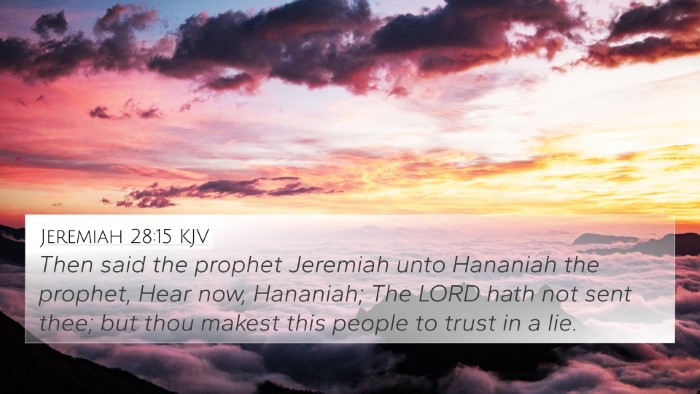
Jeremiah 28:15 (KJV) »
Then said the prophet Jeremiah unto Hananiah the prophet, Hear now, Hananiah; The LORD hath not sent thee; but thou makest this people to trust in a lie.
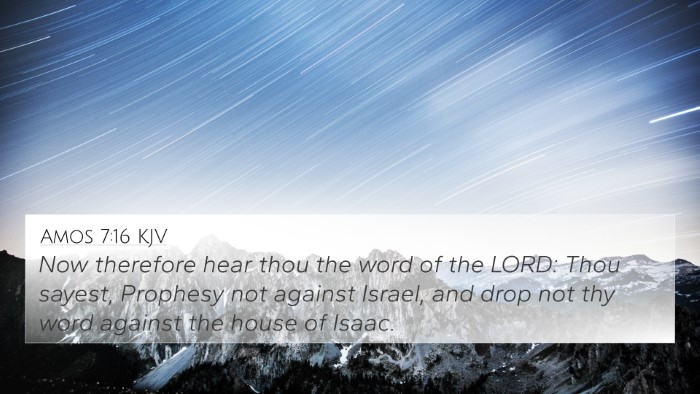
Amos 7:16 (KJV) »
Now therefore hear thou the word of the LORD: Thou sayest, Prophesy not against Israel, and drop not thy word against the house of Isaac.
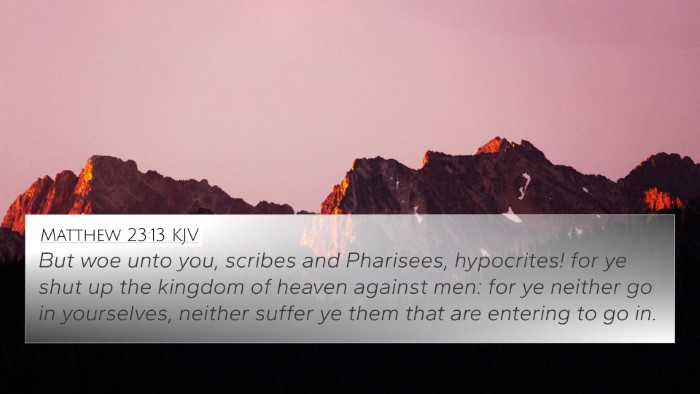
Matthew 23:13 (KJV) »
But woe unto you, scribes and Pharisees, hypocrites! for ye shut up the kingdom of heaven against men: for ye neither go in yourselves, neither suffer ye them that are entering to go in.
Amos 8:4 Verse Analysis and Similar Verses
Amos 8:4 - Overview
Amos 8:4 states: “Hear this, you who swallow up the needy, and make the poor of the land fail.” This verse calls out the social injustices prevalent during the time of Amos, emphasizing the exploitation of the poor and the needy.
Meaning and Context
The book of Amos is situated in a historical context where the Northern Kingdom of Israel was experiencing economic prosperity, yet this wealth was not shared equitably. The wealthy class engaged in dishonest practices, exploiting the vulnerable members of society. Amos's prophecy challenges these injustices, serving as both a warning and a call to repentance.
Insights from Commentaries
-
Matthew Henry: Henry emphasizes the moral obligation to care for the needy. He interprets this verse as a divine indictment against those who prioritize profit over ethical responsibilities. The rich, in their greed, overlook the plight of the impoverished, leading to spiritual and social decay.
-
Albert Barnes: Barnes notes that this verse captures the essence of severe social injustice. He discusses how this oppression is not merely a human problem but an offense against God. The way the rich treat the poor reflects their disregard for God’s commandments about justice and mercy.
-
Adam Clarke: Clarke elaborates on the societal implications of the poor being neglected. He highlights that such neglect leads to the unraveling of community cohesion and moral integrity. Clarke also points out that God observes these actions and promises divine retribution against those who fail to act justly.
Thematic Connections
This verse draws attention to larger biblical themes such as justice, mercy, and the responsibility of the wealthy towards the disadvantaged. It resonates with numerous other scriptures advocating for the protection and support of the poor.
Cross-References
- Proverbs 14:31: “He who oppresses the poor reproaches his Maker, but he who honors Him has mercy on the needy.” This verse highlights the moral and spiritual implications of treating the poor unjustly.
- Isaiah 3:14-15: “The Lord will enter into judgment with the elders of His people and His princes; for you have eaten up the vineyard, the plunder of the poor is in your houses.” This emphasizes God's judgment on those who exploit the needy.
- Micah 6:8: “He has shown you, O man, what is good; and what does the Lord require of you but to do justly, to love mercy, and to walk humbly with your God?” This outlines God's expectations for justice and mercy.
- Matthew 7:12: “Therefore, whatever you want men to do to you, do also to them, for this is the Law and the Prophets.” This verse encapsulates the ethical treatment of others, particularly in regards to the needy.
- Luke 4:18: “The Spirit of the Lord is upon Me, because He has anointed Me to preach the gospel to the poor; He has sent Me to heal the brokenhearted, to proclaim liberty to the captives and recovery of sight to the blind, to set at liberty those who are oppressed.” Here, Jesus identifies His mission as one centered around the marginalized.
- James 2:5: “Listen, my beloved brethren: Has God not chosen the poor of this world to be rich in faith and heirs of the kingdom which He promised to those who love Him?” This refers to the inherent value of the poor in God’s eyes.
- 1 John 3:17: “But whoever has this world's goods, and sees his brother in need, and shuts up his heart from him, how does the love of God abide in him?” This admonishes believers to act on behalf of those who are in need.
Application and Reflection
Amos 8:4 invites believers to reflect on their attitudes towards wealth, justice, and the plight of the poor. It serves as a reminder that societal injustices are issues that matter to God and that individuals are called to act in ways that uplift the marginalized.
Conclusion
In understanding Amos 8:4, we see a profound call to examine our ethical frameworks and societal responsibilities. This verse is not just a historical proclamation, but a timeless exhortation to uphold justice and care for those whom society tends to overlook.
This analysis highlights the importance of cross-referencing Biblical texts to comprehend the interwoven messages of justice and mercy found throughout scripture. By exploring these connections between Bible verses, believers can deepen their understanding of God's expectations and character.
Incorporating these themes into daily life can guide believers in actively pursuing justice, standing alongside the disadvantaged, and echoing God's heart in a world often marked by exploitation and inequality.
